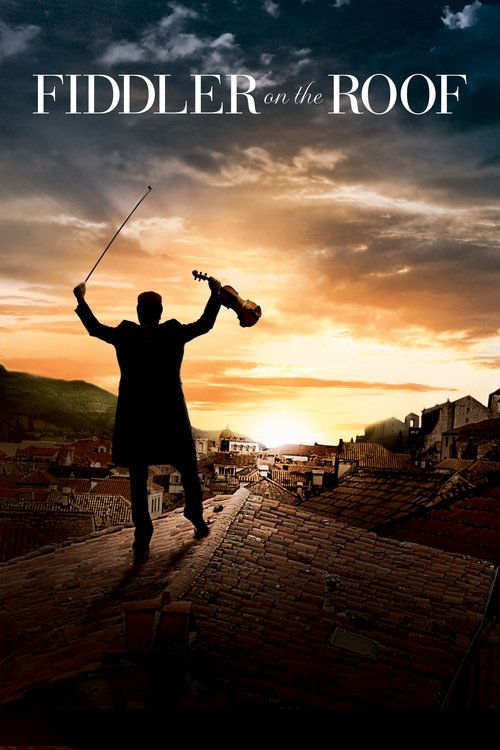
Title: Fiddler on the Roof
Year: 1971
Director: Norman Jewison
Writer: Joseph Stein
Cast: Chaim Topol (Tevye),
Norma Crane (Golde),
Leonard Frey (Motel),
Molly Picon (Yente),
Paul Mann (Lazar Wolf),
Runtime: 181 min.
Synopsis: In a pre-revolutionary Russia, a poor Jewish milkman struggles with the challenges of a changing world as his daughters fall in love and antisemitism grows.
Rating: 7.71/10
Tradition in Tension: The Resonant Craft of *Fiddler on the Roof*
/10
Posted on July 15, 2025
Norman Jewison’s Fiddler on the Roof (1971) is a cinematic tapestry that weaves tradition, upheaval, and human resilience into a vibrant, bittersweet portrait of a Jewish shtetl on the cusp of change. Adapted from the Broadway musical, itself drawn from Sholem Aleichem’s stories, the film’s enduring power lies in its delicate balance of joy and sorrow, achieved through masterful direction, evocative cinematography, and a score that pulses with cultural memory. Yet, it is not without its stumbles, as the film occasionally strains under its own ambition, stretching moments of intimacy into theatrical excess.
Jewison’s direction is the film’s heartbeat, anchoring the sprawling narrative in the intimate struggles of Tevye, the milkman-philosopher played with towering warmth by Topol. Jewison resists the temptation to let the musical’s spectacle overshadow its human core, staging scenes with a painterly eye that captures the muddy, lived-in texture of Anatevka. The opening sequence, with Tevye’s monologue set against a fiery sunrise, establishes a visual language that marries the mythic to the mundane a fitting metaphor for a community tethered to tradition yet facing modernity’s pull. Cinematographer Oswald Morris amplifies this tension, using wide, golden-hued shots to evoke a fading pastoral idyll, contrasted with claustrophobic interiors as societal pressures encroach. His camera dances with the choreography, particularly in “To Life,” where the frame itself seems to sway with drunken exuberance.
The music, rooted in Jewish folk traditions and elevated by John Williams’ orchestrations, is more than a backdrop it’s a narrative force. Songs like “Sunrise, Sunset” carry the weight of generational longing, their melodies lingering like memories. However, the screenplay occasionally falters, particularly in the second half, where the pacing slows, and some subplots like Chava’s intermarriage feel rushed, undercutting their emotional depth. Topol’s performance, though, is a revelation, blending wry humor with raw vulnerability. His asides to God are not mere theatrical flourishes but a window into a man wrestling with faith and change, making Tevye both archetype and individual.
Fiddler is not flawless; its runtime can feel indulgent, and some supporting characters lack nuance. Yet its ambition to grapple with cultural identity, displacement, and resilience remains profound. It captures a universal truth: tradition is both anchor and burden, and letting go is as much an act of love as holding on. Jewison’s film endures because it honors this paradox without easy answers, inviting us to hum its tunes and ponder its questions long after the credits roll.
0
0
